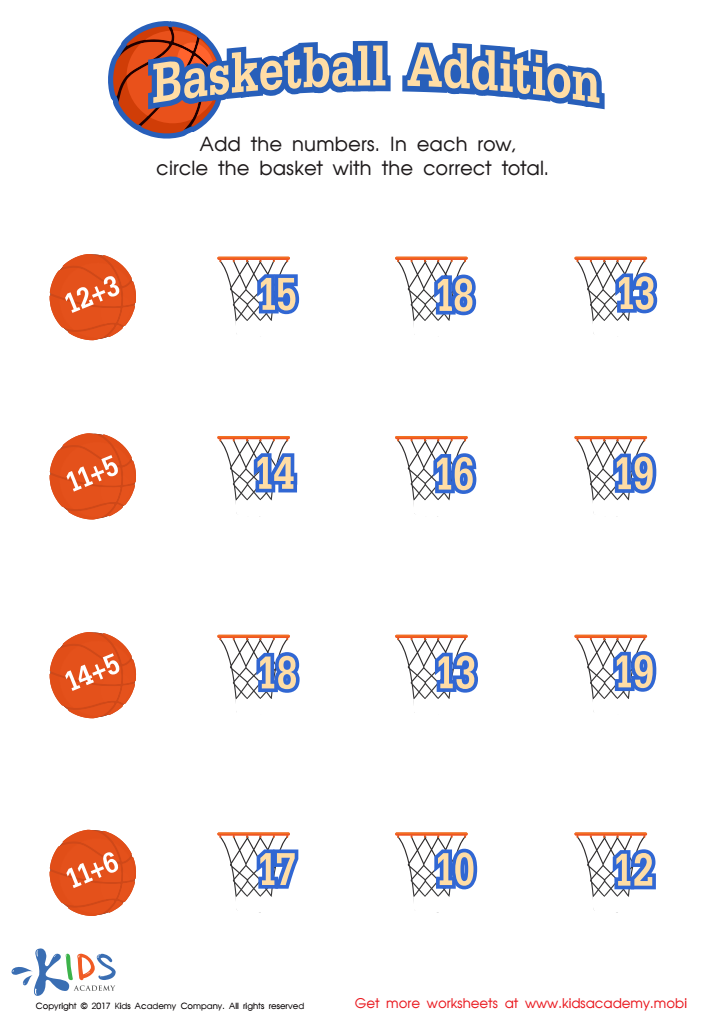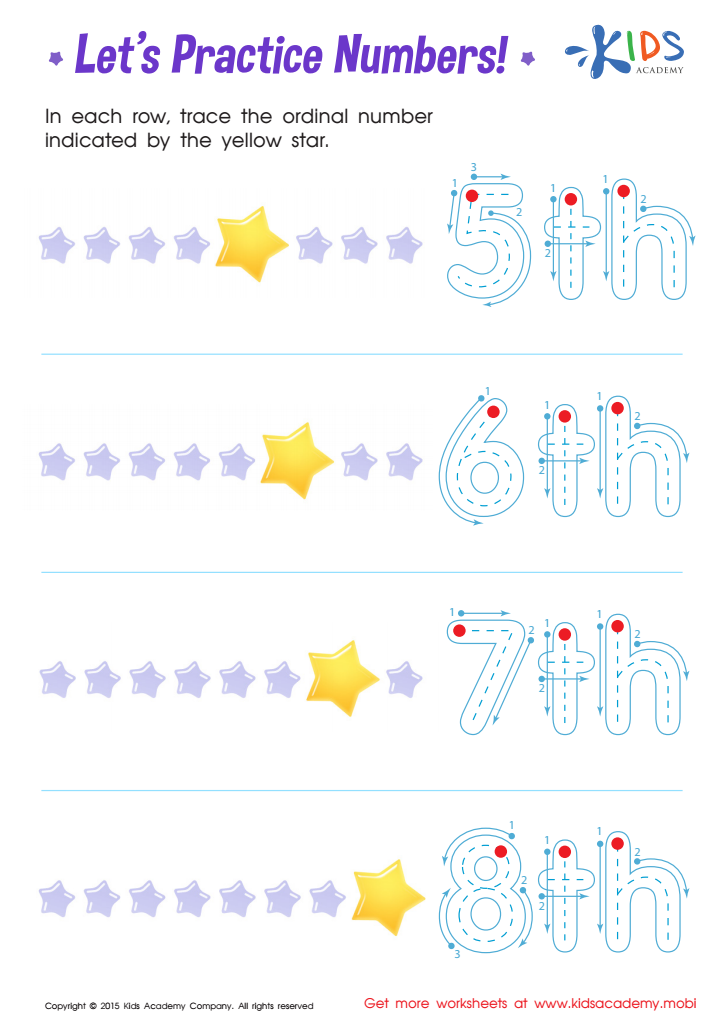Fine Motor Skills Normal Addition & Subtraction Worksheets for Ages 3-6
7 filtered results
-
From - To
Boost your child's fine motor skills while they learn basic addition and subtraction with our engaging worksheets designed for ages 3-6. These fun and interactive resources not only reinforce early math concepts but also enhance hand-eye coordination and dexterity through activities such as tracing, coloring, and cutting. Perfect for preschoolers and kindergartners, our worksheets provide a blended learning experience that fosters independent skill development. With colorful illustrations and child-friendly designs, learning math becomes an enjoyable adventure. Download our fine motor skills-focused addition and subtraction worksheets today to help your little ones thrive in math while mastering essential motor abilities!
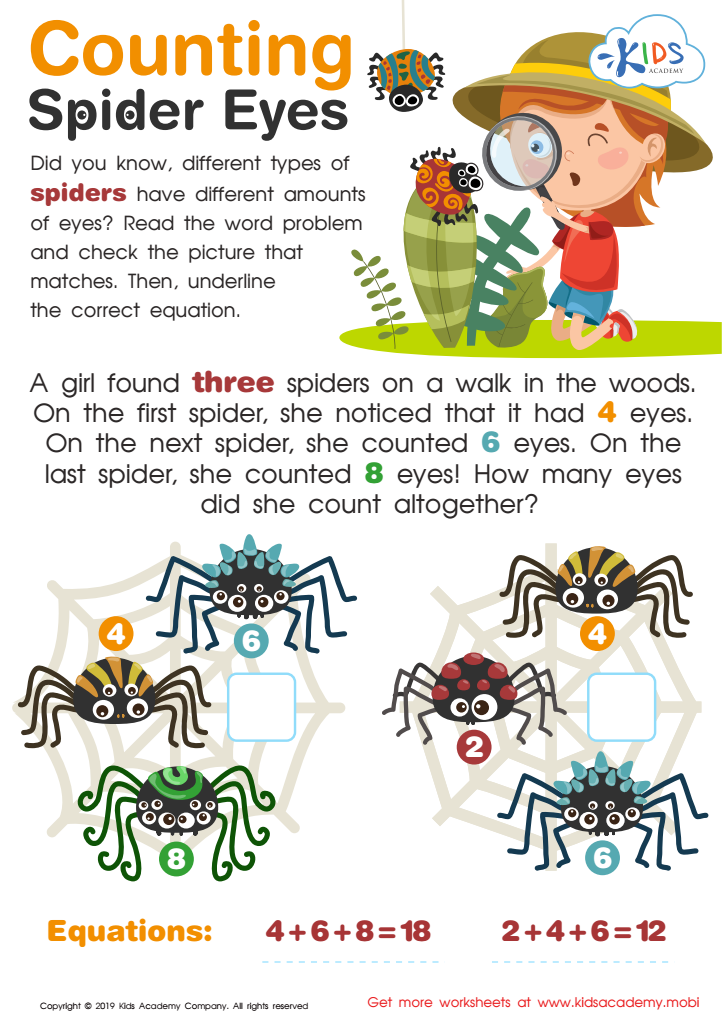

Counting Spider Eyes Worksheet
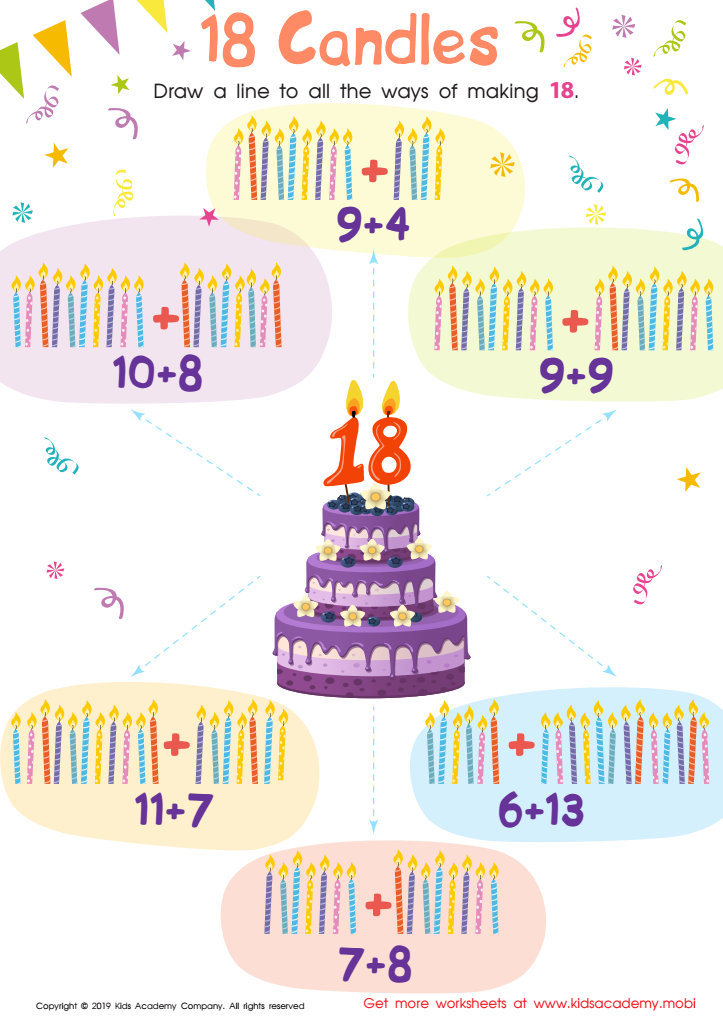

18 Candles Worksheet
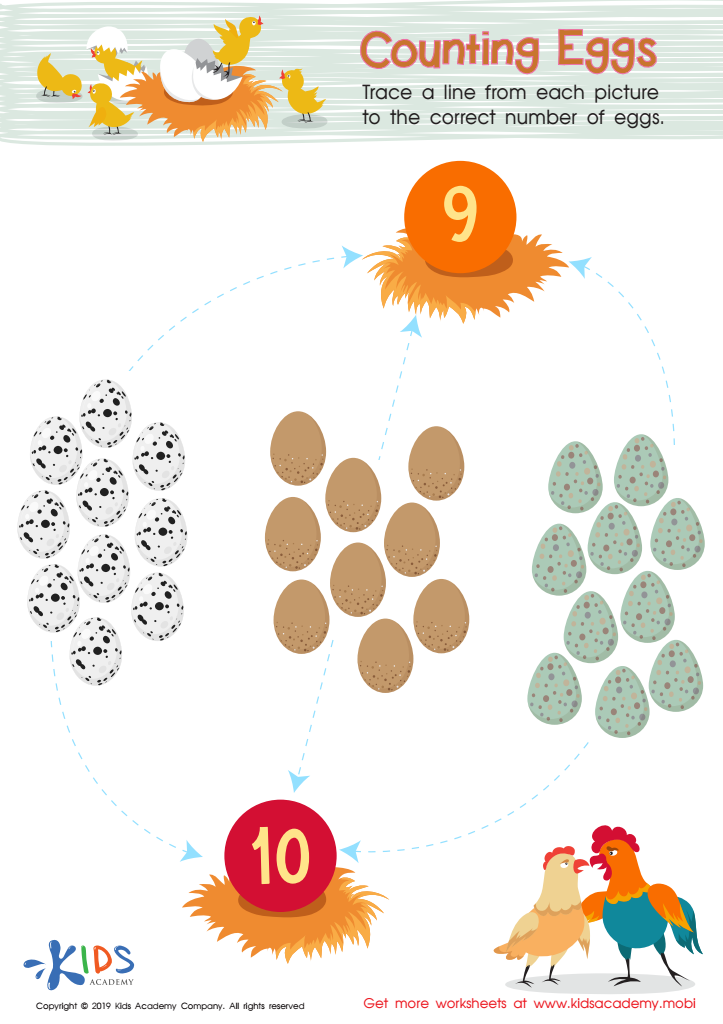

Counting Eggs Worksheet
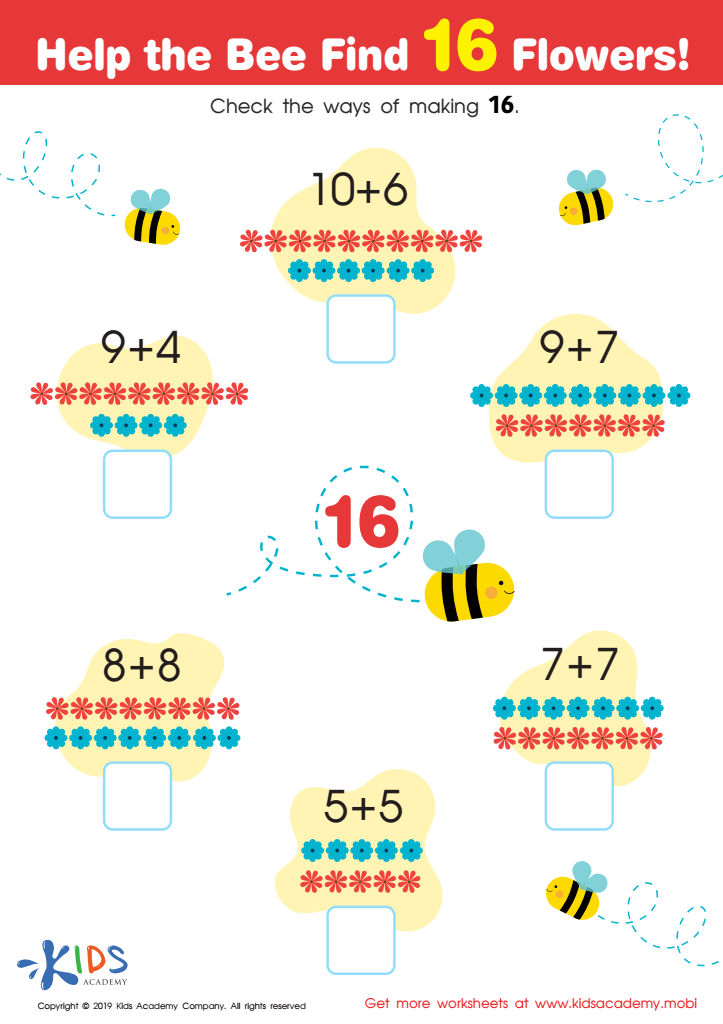

Help the Bee Find 16 Flowers Worksheet
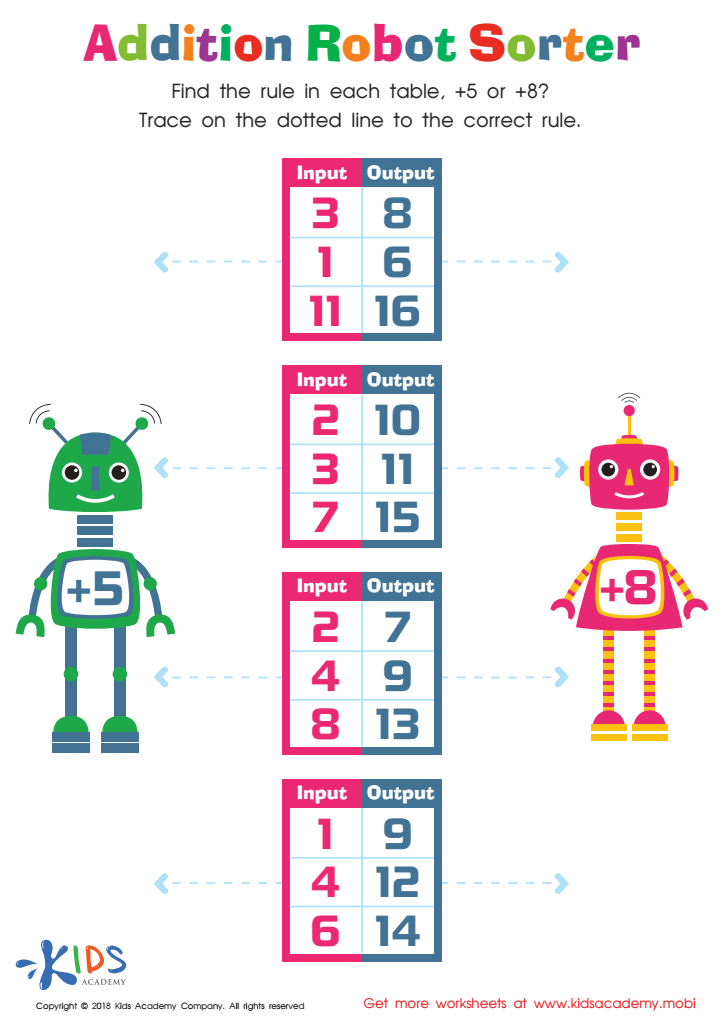

Addition Robot Sorter Worksheet
Parents and teachers should prioritize the development of fine motor skills and basic addition and subtraction for children aged 3-6, as these skills are foundational for both academic success and everyday functioning. Fine motor skills involve the ability to use small muscles in the hands and fingers, which are essential for tasks such as writing, drawing, and using tools. Strengthening these skills through play or activities enhances children's ability to manipulate objects, ultimately leading to improved coordination and dexterity.
Simultaneously, introducing normal addition and subtraction concepts helps children develop early mathematical skills that are crucial for future learning. Understanding these operations lays the groundwork for problem-solving and critical thinking. When children engage with math in a hands-on and visual manner—using blocks, counters, or even art supplies—this kind of play empowers them to absorb concepts more effectively.
By fostering both fine motor and early math skills, parents and educators equip children with essential tools for academic readiness. Additionally, mastering these skills can boost confidence, making kids more willing to engage in school activities. Overall, supporting this development nurtures well-rounded individuals capable of tackling both creative and analytical challenges in their early years.
 Assign to My Students
Assign to My Students
